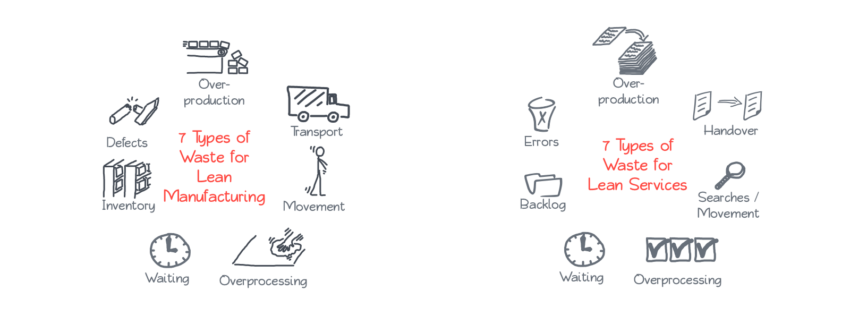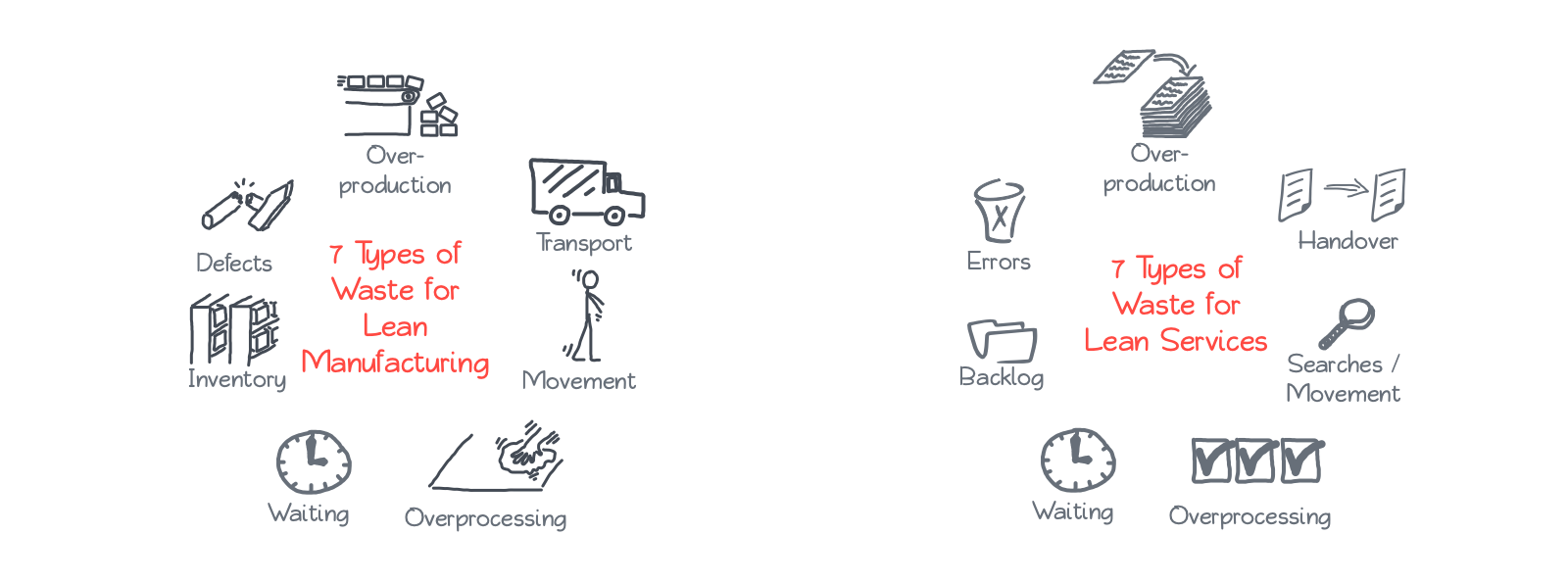How does Lean Services/Lean IT differ from Lean Manufacturing? Do we actually have the same types of waste?
While everyone is comfortable with the 7 types of waste in Lean Manufacturing, there seems to be a lot of confusion regarding the classification of waste in the service and IT sector. I often hear comments that the concepts from the shop floor can’t be transferred to a service/IT environment. Since I disagree with that point of view and think that wastes in services/IT map almost one to one to wastes in manufacturing, I made a little table with examples:
[table class=”table table-striped”]
Waste in Manufacturing; Waste in Services/IT; Examples in Services and IT
Overproduction; Overproduction; Create a report that no one reads, start developing a new functionality instead of finishing the ongoing tasks, adding some fields to a SQL table “just in case”.
Transport; Handover; Passing a purchase order to a different person or department for verification, passing the product specification from the business analyst to the developers.
Movement; Searches/Movement; Travelling to visit a client, the key strokes required to code a functionality, looking up information.
Overprocessing; Overprocessing; Double/triple checking inputs, overly worrying of a routine’s computing performance before testing the entire solution in practice.
Waiting; Waiting; Waiting for someone else to return on a request, waiting for the automated tests to be finished.
Inventory; Backlog; Unfinished requests, not completely processed orders, programs which have been specified but not yet developed.
Defects; Errors; Incorrect delivery information on an order, wrong product specifications send to engineering department, software bugs.
[/table]
Where is Rework?
Some production systems refer to defects/errors as rework. This can lead to a wrong understanding of waste elimination: Avoiding rework by not fixing errors!
Where is the 8th type of waste for Lean IT: Knowledge?
Knowledge as type of waste has only one function: To say to your white-collar programmers, “you are so much smarter than the blue-collar guys from the shop floor”. Anyone who actually believes that sh… is welcome to work as a welder or electrician, just to figure how much knowledge is really required to do these kinds of jobs.
Besides that a “lack of knowledge” can be easily detected by looking at other types of waste like errors or searches. “Excess of knowledge” can be indeed a potential for improvements, but stressing this concern too much can be evenly dangerous since it lures managers away from the creation of flow and generates a focus on financial optimization.
Disclaimer
What matters at the end is the elimination of root causes for waste. The 7 types of waste are just a tool which help you too see the problems and not an exact academic definition. So it doesn’t matter how many and what types of waste do you have as long as you work hard on the reduction on non value adding activities.


